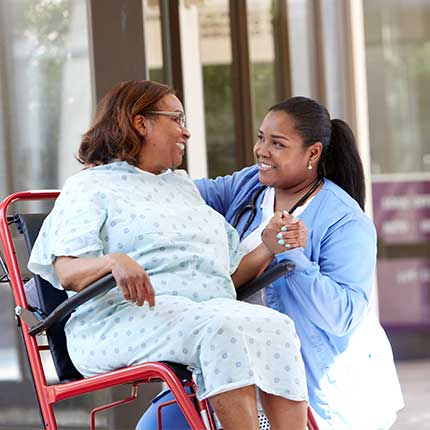Healthy Living
Early Warning Signs of a Heart Attack
There are many different kinds of warning signs posted along streets, roads and highways. No passing zone, railroad crossing, merging traffic, divided highway, school zone, construction ahead – the list goes on. Similar to these recognizable traffic signs are warning signs of a heart attack. Becoming familiar with them could save your life, just like paying attention to warning signs when you are driving.
A heart attack occurs when there is a blockage in the flow of blood in an artery that leads to the heart. Part of the heart muscle is then damaged or destroyed because it does not receive enough oxygen. More than 700,000 Americans have a heart attack, also known as a myocardial infarction, every year. The key to surviving a heart attack is knowing the warning signs so you can get emergency medical treatment.
Three Warning Signs of a Heart Attack
If you think you are having a heart attack, call 9-1-1 immediately for an ambulance to take you to the hospital. Do not try to drive yourself. Some of the early warning signs of a heart attack include:
- Chest pain or discomfort that lasts longer than a few minutes or goes away and then comes back. This pain may be severe and feel like uncomfortable pressure, squeezing or fullness that is not relieved by changing positions or resting.
- Pain that extends to other areas of the body, such as the shoulder, arm, back, neck, jaw or stomach.
- Shortness of breath as well as lightheadedness, sweating, fatigue, fainting, nausea or vomiting.
It is important to remember that not all people who have heart attacks experience the same symptoms or to the same degree.
The warning signs for women may be slightly different than those for men. While both commonly experience chest pain or discomfort, women may be more likely to have shortness of breath, nausea and vomiting, and back or jaw pain.
Warning signs of a heart attack can appear at any time, at rest or in motion, and at work or play. A heart attack may strike suddenly, but most people have warning signs and symptoms hours, days or weeks beforehand. One of the earliest warning signs of an impending heart attack is chest pain, or angina, that occurs repeatedly because of exertion and is then eased by rest.
Early intervention for a heart attack is imperative to reduce damage to heart muscle. Clot-busting drugs can be administered and special procedures can be done to open up blood vessels. However, treatment works best when administered within an hour of the first symptoms of a heart attack. Survival will ultimately depend on how rapidly you receive treatment, how much damage there is to the heart, and the location of the damage.
For more information about early warning signs of heart attack, talk with your doctor.



